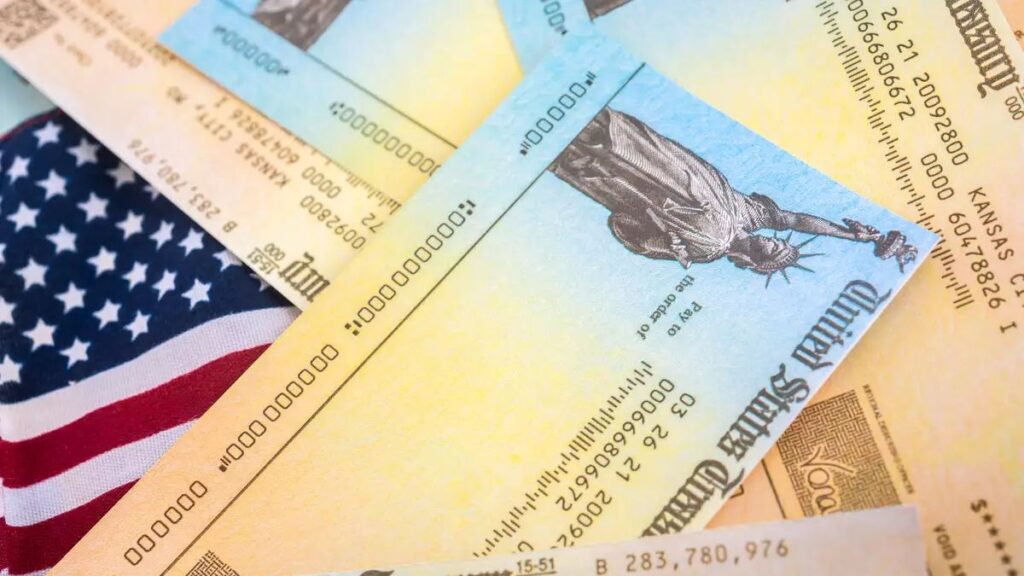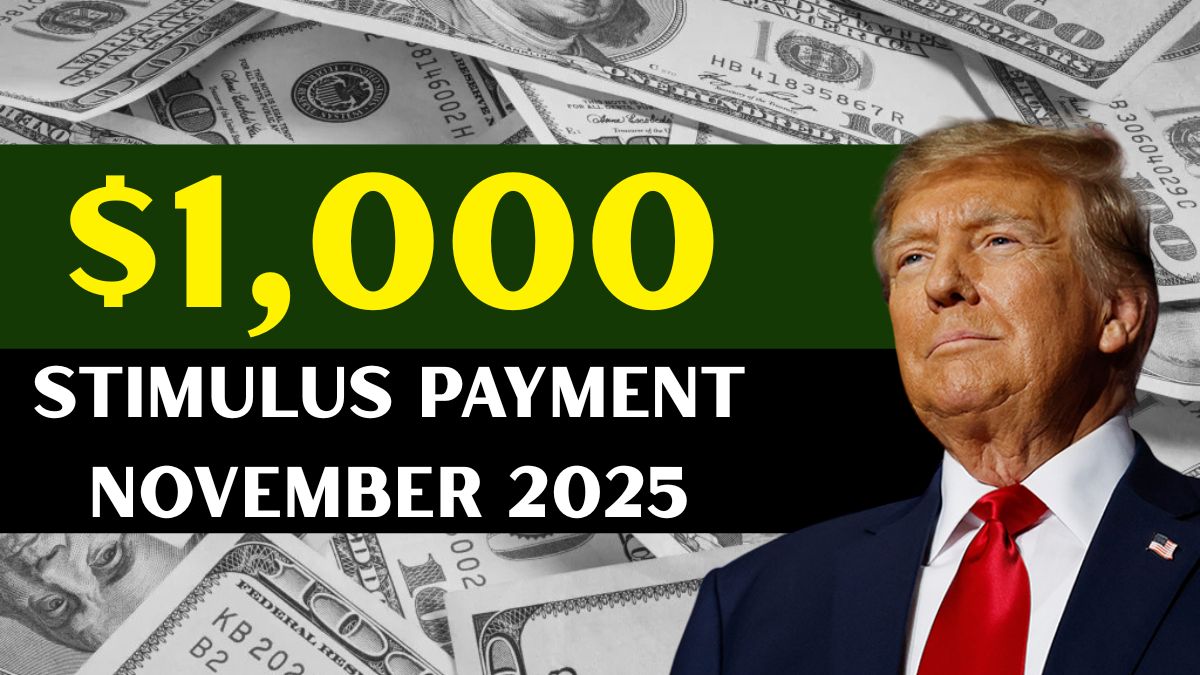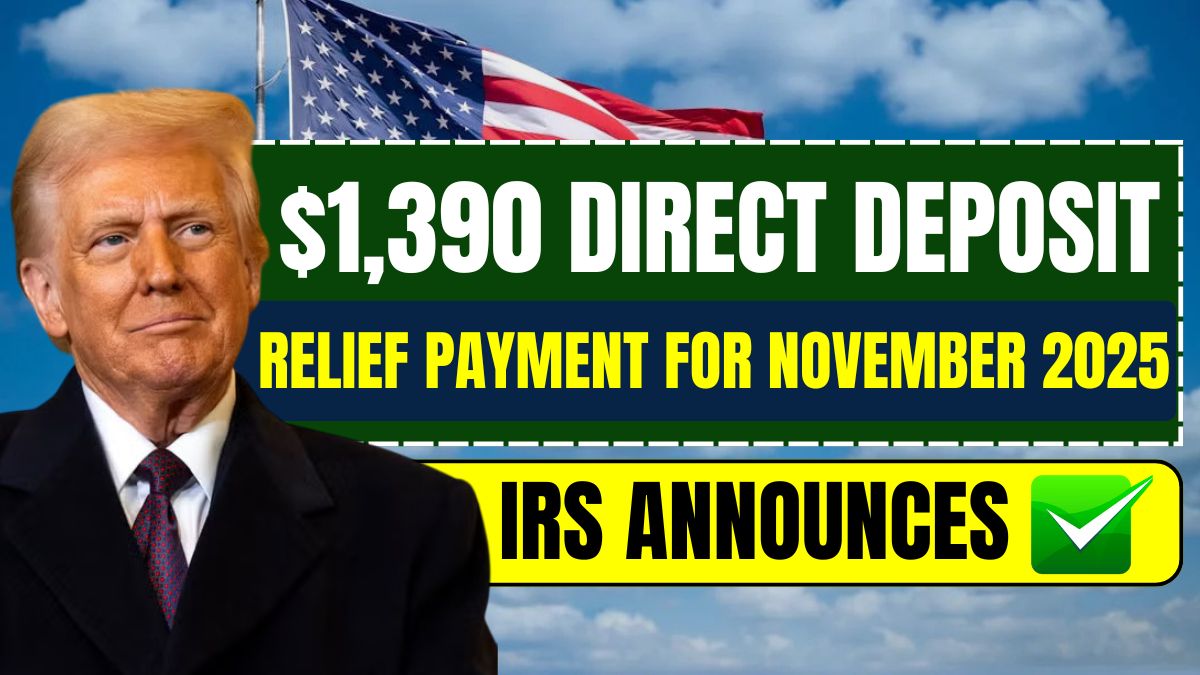As November 2025 approaches, a single question is circulating on social media—is the IRS really going to send a $2,000 direct deposit to every American? Rising inflation, rent increases, and daily expenses have put pressure on the budgets of millions of families. People are hoping for a new relief package, similar to the one received during the COVID pandemic. But there’s a significant discrepancy between the news circulating online and reality. This article clarifies that discrepancy and explains what’s actually happening, who can benefit, when payments might arrive (if approved), and the IRS’s official advice.
Table of Contents
$2,000 Payment Discussion Spreading on Social Media

For the past few weeks, claims have been circulating on social media that the government is going to send a $2,000 direct deposit to people from “tariff funds.” Many posts claim that this will be sent by the IRS before the holidays. However, this bears little resemblance to the truth.
Currently, the IRS has not announced any new national stimulus program. The last official stimulus payment was in 2021, when the third installment of $1,400 was provided. The deadline to claim it was April 15, 2025, and after that, only past cases were adjusted.
However, some political proposals have reignited this discussion. The American Worker Rebate Act of 2025, introduced by Senator Josh Hawley, suggests providing up to $2,400 to middle-income families. Former President Donald Trump also talked about using tariff revenue to fund payments of $1,000–$2,000. However, as of October 29, 2025, no such bill has been approved, and the IRS has categorically denied the existence of such a program.
If future payments are approved, who will be eligible?
If a $2,000 relief payment is ever approved, its terms may be similar to previous stimulus payments. Possible criteria could be as follows:
Income Limits
- Single individuals earning up to $75,000 annually can receive the full payment.
- Married couples filing jointly can be limited to $150,000.
- Amounts will decrease for incomes above this limit, ending at $80,000 (singles) or $160,000 (couples).
Citizenship and Residency
- US citizens and permanent residents with a Social Security number will be eligible.
- ITIN holders may also benefit in some cases.
Tax Filing Status
- Those who filed their 2024 or 2023 taxes will be eligible.
- People listed as dependents on someone else’s tax return will not receive a separate payment.
Benefit Groups
- Recipients of SSI, SSDI, VA Disability, and Railroad Retirement may be automatically included, provided their income is within the limits.
Exclusions
- People with very high incomes or tax-exempt organizations will not be eligible.
These are all possibilities. The actual criteria will be determined only when a bill is passed.
When and how will payments be received? (If approved)
If this payment is passed, the IRS will release it in phases as before. Based on discussions on social media, the estimated timing is as follows:
- Direct Deposit: November 15 to November 25, 2025
- Paper Check: Late November to Early December
- EIP Debit Card: Early December
The IRS prioritizes those with updated bank information and who filed taxes on time. But to be clear—there is currently no official confirmation of these dates.
IRS Official Advice: What to Do Now?
The IRS advises people to avoid rumors and be prepared. These steps will help you benefit from any future relief programs:
Keep Your Information Updated
- Update your bank account, address, and tax filing information by visiting IRS.gov.
File Taxes on Time
- File your 2024 tax return by April 15, 2026, to keep your information active.
Claim Old Credits
- If you didn’t receive the $1,400 payment for 2021, you can claim it under the Recovery Rebate Credit on your 2025 return.
Beware of Scams
- The IRS never asks for bank information over the phone, email, or text. If you receive such a message, report it immediately to phishing@irs.gov.
Keep an Eye on Official Updates
- Any new program announcements will be made on the IRS website, not on social media.
Real Relief Plans Coming in November 2025
$2,000 payments aren’t yet guaranteed, but some real government benefits are reaching people in November:
- Social Security and SSI payments: November 1st and other dates based on birth date. Includes a 2.5% COLA increase for 2026.
- VA Benefits: Most veterans will receive payments on November 1st.
- State Rebate Plans:
- New Jersey’s ANCHOR Tax Relief (up to $1,500)
- $800 in Colorado
- $250–350 in Georgia
- Tax Refunds: The average person is getting a refund of $2,500, which can be tracked with the IRS’s “Where’s My Refund” tool.
These plans do exist and are strengthening people’s financial situation.
Beware of Scams
According to the FTC, IRS-related phishing scams resulted in losses of over $1 billion in 2025. Be alert to these signs:
- If a website demands an immediate fee.
- Makes claims like “guaranteed payment” or “fast approval.”
- Emails have the IRS logo but the address appears suspicious.
If you’re a victim, immediately file a complaint with IdentityTheft.gov and freeze your credit.
Conclusion: Relief comes from real information, not rumors.
Discussion of $2,000 payments reflects people’s genuine economic concerns, but no such payments are scheduled for November 2025. Social media rumors usually benefit scammers, not the public.
Until a new bill is passed, focus on real benefits—like Social Security increases, state tax rebates, and existing IRS tax credits. Also, always keep your IRS information updated so you can quickly take advantage of any new relief programs in the future.
If the American Worker Rebate Act is passed, relief could open up. Until then, budget wisely, take advantage of local assistance programs if needed, and speak with a certified tax professional for tax advice.
FAQs
A. No. The IRS has not announced any new $2,000 stimulus or relief payment for November 2025.
A. Eligibility would likely follow past stimulus rules, mainly based on income limits, citizenship status, and tax filing records.
A. No official dates exist. Rumored timelines are only assumptions shared on social media.
A. No extra stimulus, but regular payments and COLA increases for 2026 are being issued.
A. Never share bank details through email, text, or calls. Always check updates directly on IRS.gov.



Thank you.for your information.bye